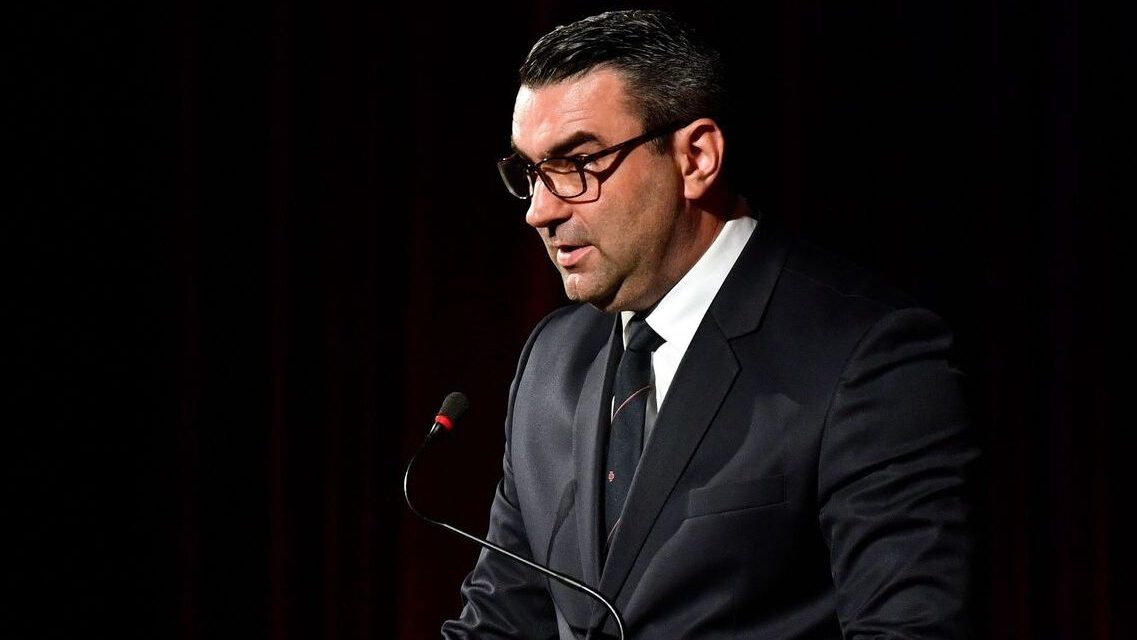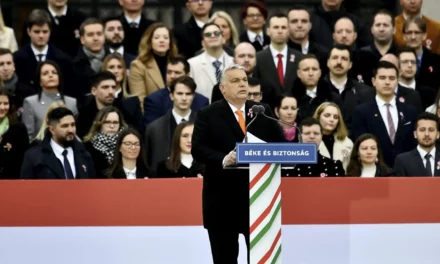Article 4 (2) of the Treaty on European Union (hereinafter: TEU) declares that the Union respects the equality of member states before the Treaties. Written by Zoltán Lomnici Jr.
In addition, Article 5(3) TEU establishes the principle of subsidiarity, the aim of which is to ensure that decisions are made at a level as close as possible to the citizens, and that continuous checks are carried out to verify that the measures taken at the EU level are in accordance with the national , whether they are justified in light of the opportunities available at the regional or local level. A principle closely related to the principle of subsidiarity is the principle of proportionality, according to which no EU measure can extend beyond what is necessary to achieve the goals set out in the treaties. Finally, according to Article 9 and Article 10 (1) of the EUSZ, the EU respects the principle of equality between its citizens in all its activities.
The basic EU principles and values listed above, which have determined the functioning of European integration from the beginning, are embodied and protected "in one person" by the institution of the member state's right of veto, which is briefly determined by Article 15(4) TEU as "if the Treaties differ do not have, the European Council decides by consensus".
By exercising the right of veto, the member states can ensure that their interests are channeled into joint decision-making - which, due to the specific operating mechanisms of integration, is an indispensable tool especially for the smaller member states -, as a result, the institution ultimately ensures the enforcement of the rule of law within the EU's institutional system. Although the process of the procedure can sometimes be slower and more difficult because of this, it guarantees a democratic, pluralistic and accountable decision-making process against the "power of the few".
Despite this, the federalist interest groups organized along the lines of imperial logic have lately declared a constant war in order to abolish unanimous decision-making, that is, the right of veto.
In July 2022, German Chancellor Olaf Scholz stated: "We can no longer afford national vetoes in foreign policy..." A similar position was taken by Josep Borrell, the High Representative of the European Union for Foreign Affairs and Security Policy, who - although he emphasized that this requires unanimity - also vetoes took a stand in favor of its termination. But in addition, the far-liberal Renew Europe EP group has also indicated on several occasions that it is committed to limiting the use of unanimity within the EU, saying it is outdated in many areas.
The statements were followed by action, and in the spring of 2023, the so-called "Group of Friends dealing with Qualified Majority Voting" was formed, bringing together nine EU countries (Belgium, Finland, France, Germany, Italy, Luxembourg, the Netherlands, Slovenia and Spain), with the declared aim of speed up and transform decision-making within the framework of EU treaties.
Finally, at the end of last year, the European Parliament officially initiated a significant limitation of the member state veto, proposing in its resolution to increase the number of areas where decisions are made by qualified majority voting instead of unanimous voting.
The attempt to severely restrict the rights of the nation-state (especially the rights of the smaller member states) occurs despite the fact that the currently valid EU law provides several alternatives for the EU institutions and the member states to deviate from the decision-making procedures prevailing as a general rule.
In order to make the decision-making of the European Union more flexible, Article 48 (7) of the TEU establishes the possibility of two types of general passerelle clauses (so-called bridging clauses), which enable the originally prescribed legislative procedure to be changed.
If the Treaty on the Functioning of the European Union (TFEU) or Title V of the EUSZ (General provisions on the external activities of the Union and special provisions on the common foreign and security policy) require unanimous decision-making by the Council in a specific area or case, the European In a resolution, the Council may authorize the Council to decide by a qualified majority in a given area or case, with the provision that this option cannot be used in the case of military or defense-related decisions.
If the EUSZ stipulates that the Council must adopt certain legislative acts within the framework of a special legislative procedure, the European Council can provide in a decision that such legislative acts can also be adopted within the framework of a regular legislative procedure.
An important guarantee rule is that the European Council must notify the national parliaments of all initiatives it takes in both cases. And if a national parliament raises an objection to the proposal within 6 months from the date of notification, the said decision cannot be accepted.
The passerelle clauses fixed by the EU treaties refer to six specific policy areas: common foreign and security policy; cross-border family law; social policy; environmental protection policy; the multiannual financial framework; enhanced cooperation.
Within the framework of the "enhanced cooperation" (as an alternative decision-making) procedure declared in Article 20 of the TEU, it is allowed for at least 9 EU member states to establish enhanced integration or cooperation within the EU in a specific area that does not belong to the exclusive competence of the EU, if it was established that the objectives of such cooperation serve to protect the interests of integration and cannot be achieved by the EU as a whole within a reasonable time frame. This allows them to progress at a different pace and with different goals than those Member States that have chosen not to participate in areas of enhanced cooperation. The goal is to eliminate deadlocks when one or more member states do not agree with a specific proposal, and thus a decision cannot be reached.
In this regard, Article 333 of the TFEU states as an important procedural rule that if a provision of the Treaties that may be applied within the framework of enhanced cooperation requires the Council to make a unanimous decision, the Council may stipulate in a unanimously adopted decision that decisions must be made by a qualified majority in the future. However, this does not apply to military or defense-related decisions.
The possibility of the enhanced cooperation procedure is open to all member states at any time, as long as it does not allow powers to be expanded beyond what is allowed in the Treaties, and the legal acts adopted in the framework of enhanced cooperation are only binding on the participating member states, they are not part of the EU of EU acquis to be accepted by countries intending to join.
Therefore, the Treaties currently guarantee alternative options for deviating from the prescribed procedures, which is why the federalist effort to remove the veto right of the member states is worrisome.
On the one hand, taking away the possibility of the veto by bracketing the democratic process of debates between the positions of the nation-state would impair the democratic and efficient functioning of the institutions. Without the veto, the nation-states would not be able to take effective action against the Brussels plans that weaken both the continent and the nation-states, such as migrant resettlement quotas, self-destructive sanctions, or economic policy measures that serve the interests of Western globalist big capital. All of this would clearly put the smaller or medium-sized member states in a very difficult situation, while it would favor the larger – and thus more influential – member states. This would violate the spirit of the EU slogan "Unity in Diversity" and would further sharpen the already tense internal contradictions.
In addition, the fundamental principles laid down in the basic treaties of the EU, such as the principle of the rule of law, would be clearly violated by deleting the right of veto from EU law, because it would violate the sovereignty of the member states, which is divided but still exists, since it could create situations in which the state's electorate politicians are not able to effectively enforce the will of the voters. But the abolition of the right of veto would in the long run undermine fairness, the right to national self-identity, as well as the European interest in social acceptance, not to mention the EU principle of the principle of equality.
Finally, it is also important to emphasize that a member state veto would be an unreasonable step from a political point of view, since if the vital interests of a member state could be neglected in this way, it would reduce the attractiveness of integration, threatening with disintegration and possible – after Brexit, we can say further – exits.
Featured image: MTI/Zoltán Máthé












